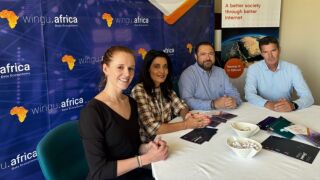African telecoms is big news these days, with a consequent flood of investors looking to establish a stake in the continent. None has generated half the headlines of Indian operator Bharti Airtel.
In the last few months alone, it has bought the African assets of Kuwaiti operator Zain for $10.7 billion giving it a mobile market presence in 15 countries; added the purchase of Telecom Seychelles for good measure; seen a prospective merger with South African player MTN fall apart; overseen the lighting of the East Africa Submarine System (Eassy) of which it is a major backer; planned the divestment of its mobile phone towers in the region to a third party; and now concluded a huge outsourcing deal with IBM to help it manage its new African operations (see news, page 6). But what does Bharti now have up its sleeve if it is to make a profitable go of a region where geography is daunting, infrastructure scanty and disposable income generally low?
Ajay Chitkara, COO of Bharti Airtel’s global data business, argues that all of the operator’s recent African moves need to be seen in the context of its well-publicised strategic push for growth in emerging markets: “We have already demonstrated a strong focus in emerging markets like Asia-Pacific, south Asia and the Middle East,” he says. “Our efforts in Africa are in consonance with this.”
The company’s investment in the Eassy cable, and the capacity it has taken on the Teams system, give it, he says, a vital stake in Africa’s fast-emerging market for data services, with its expected compound annual growth of up to 85% over the next few years. “We now offer multiple route diversity through Eassy and Teams, with a few more cables yet to come,” he says. “Soon we’ll be the only carrier to offer five or six paths in Africa, interconnecting to three other intercontinental cables in the form of SeaMeWe4, EIG and IMeWe.”
Getting into Africa’s mobile services sector through the Zain buy-out he describes as a “no brainer”: “Can Africa become the world’s biggest mobile market – as people are saying? I don’t see why not. We are uniquely positioned to serve Africa. No other carrier has what we have there. With our recent acquisition we now have a domestic network in 15 countries that equips us with excellent access and backhaul capabilities.”
The Zain acquisition, he concedes, was largely opportunist, and not an explicit part of Bharti’s original global network strategy: “But it ties in well with that plan. Yes, Africa is becoming a competitive place, with its own network operators as well as carriers from outside. But we believe in competition, and we like it like that. At the end of the day, there’s a huge opportunity where we can all co-exist. Some African operators are only focussed on one or maybe two markets, and some only on the mobile side. None has our scope.”
Chitkara says Bharti’s next task is to interconnect its numerous African assets with its global network, having first rebranded Zain services as Airtel ones: “We also need to develop some services for those African markets in areas like IP, MPLS and Ethernet,” he says. “Africa is currently underserved with internet services, so I’d expect us to make a strong focus of IP business.” The company has already announced plans to finance its mobile market activities in Africa through the sell-off of its phone towers in that region to subsidiary Bharti Infratel, and the IBM deal will similarly help it to streamline operations.
Chitkara says Bharti’s interest in Africa’s domestic markets certainly won’t stop at the Zain and Telecoms Seychelles acquisitions: “We’ll be looking at other African markets too,” he says. “We won’t obviously have the instant mobile footprint there, but we can find a way get into them along with the right partner.”
Bharti’s key challenge in Africa will be to achieve profitability in a region where margins tend to be slender, says Andy Doyle, head of telecoms consultancy services at management consultancy Mott MacDonald. “African ARPUs are extra low, but you can still run a profitable operation if you can keep cost out of the business,” he believes. “That’s what Bharti is doing with outsourcing to IBM and with transferring towers to a third party. MTN, Bharti’s main rival now in African mobile telecoms, needs to wake up and respond. The downside for Bharti is that they have only really tried this model out in India with its huge population. Some of the African countries it’s in now have populations of five million. And let’s not forget how Zain banged on about how important Africa was to them, but in the end their money men weren’t so enamoured and they sold out.”




